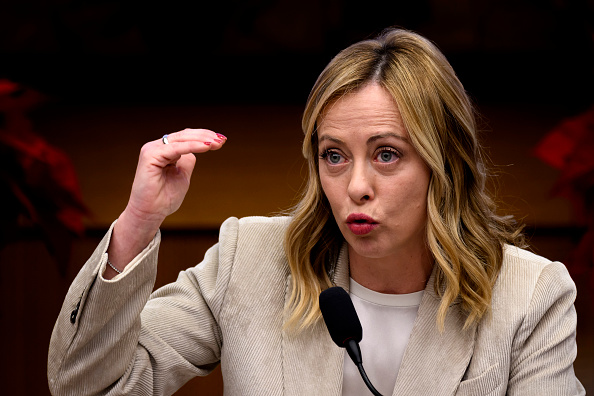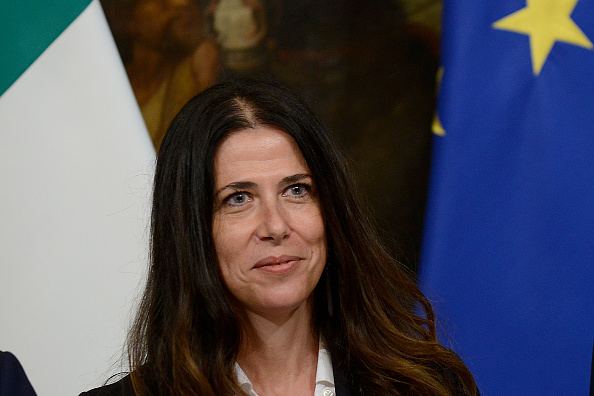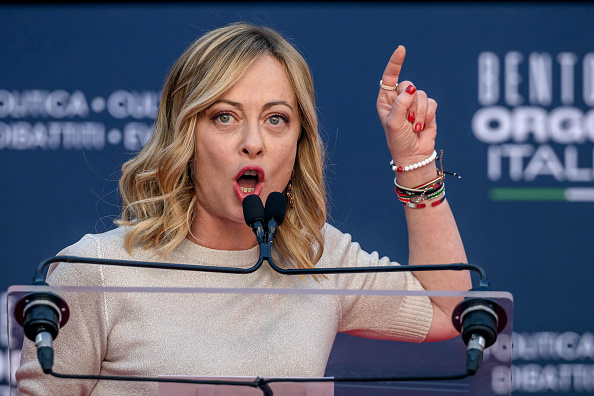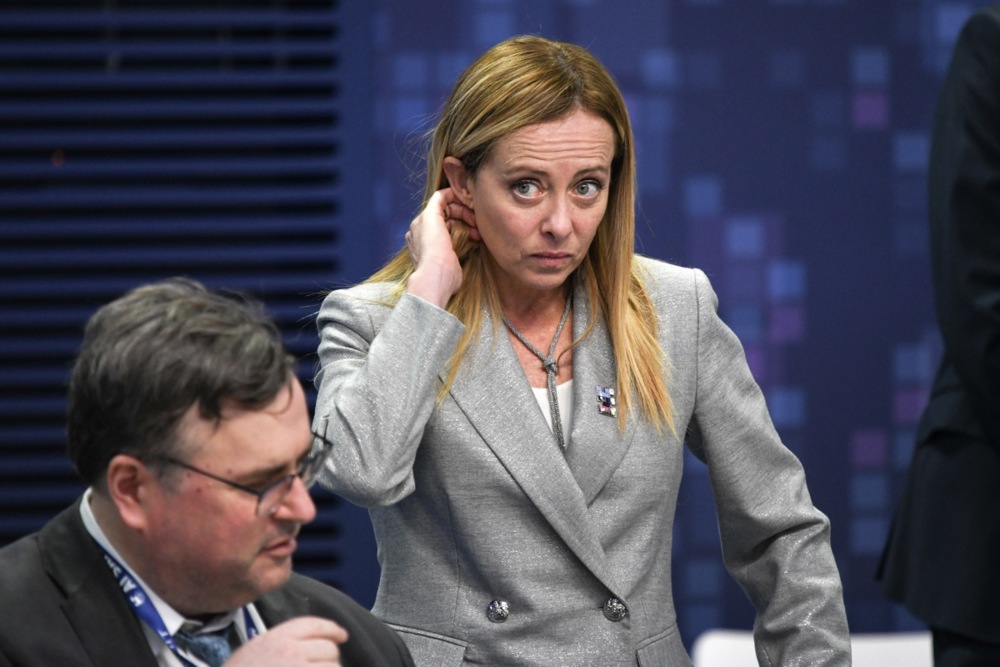Italian Prime Minister Giorgia Meloni has officially launched her controversial campaign to change Italy’s Constitution.
Rewiring Rome’s political framework to feature a directly-elected prime minister with fixed five-year terms would be “the mother of all reforms”, Meloni told Rai 1‘s primetime evening TV show Porta a Porta on April 4.
For Meloni, the change would bring an end to a revolving door at the Palazzo Chigi, the prime ministerial HQ, which since 1946 has seen 68 governments – on average a new one every 13 months.
“This is not a reform about me … this is a reform about what happens next,” she told host Bruno Vespa.
“This is about the future,” as hers, Meloni pointed out, “is already a stable Government”.
At a time of fiscal pressure, the push for a stronger leadership set up is also an inexpensive way of winning votes to her Right, especially from her “frenemy” coalition partners in Matteo Salvini’s Lega party and the rudderless post-Silvio Berlusconi Forza Italia party.
For supporters such as Federico Redigonda, a chartered accountant in the North-Eastern city of Udine, constitutional reform is Italy’s opportunity to “overcome a legislative scheme which in my opinion is antiquated, [and where] stability and popular sovereignty would be guaranteed, [and] citizens would choose the prime minister just as they elect the mayor, a mayor of Italy.”
For critics on the Left, such as Democratic Party leader Elly Schlein, the weakened executive in Italy’s 1946 Constitution was an important post-war safeguard amid memories of Mussolini and fears of Communism.
Some opponents in the centre argue against stripping the president of the historically popular power to appoint technocratic governments at times of crisis. One such example was when President Sergio Mattarella made former European Central Bank head Mario Draghi PM for 20 months in February 2021 at the height of the Coronavirus pandemic.
Under Meloni’s reforms, the president of the republic would be “limited to events with prosecco and chips”, claimed retired diplomat Francesco Capponi.
Italian political history is littered with failed attempts to introduce stability to a Constitution originally drafted to prevent future Mussolinis – an ongoing debate for which there is an Italian term: The premierato [leader] question.
Among other failures, a 1993 draft by then-Senator Cesare Salvi died in Parliament, as did a 2013 one drafted by “10 wise men” appointed by then-president Giorgio Napolitano.
Former PM Berlusconi also tried and failed – a June 2006 referendum defeating his constitutional changes by 61 per cent to 39 a month after he lost an election to the centre-left coalition supporting then-PM Romano Prodi.
Meloni could win this time where those others have failed, according to Turin-based political analyst Lorenzo Pregliasco.
To do so, she needs to succeed in framing her constitutional reforms as small changes to strengthen governmental accountability to the public and the principle that the government should reflect the will of the people, Pregliasco said.
For Meloni, the strategy is a high risk one: The blow to Government authority “would be very high” if it loses in a referendum, Matteo Legrenzi, an international relations professor at Ca’ Foscari University of Venice, told Brussels Signal.
Even if she wins, a directly-elected prime minister could still end up facing a fragmented parliamentary party.
“Meloni seems to be falling for the classic trap of thinking a directly elected leader will be ‘stronger’, missing that strength in a parliamentary system comes from support in that parliament,” said James Upsher, a former staff member in the UK Royal Household.
“Separating the premierato‘s fate from that of their party will not achieve that,” he argued.
For Meloni, her aim is for reforms “that in my heart I consider the most important legacy I can leave to Italy”, she told Porta a Porta viewers.
If she succeeds, she may also try to introduce direct election for the office of president as well – replacing a complicated selection process that has been compared to a Papal conclave.
“I’m not against it,” she said.





